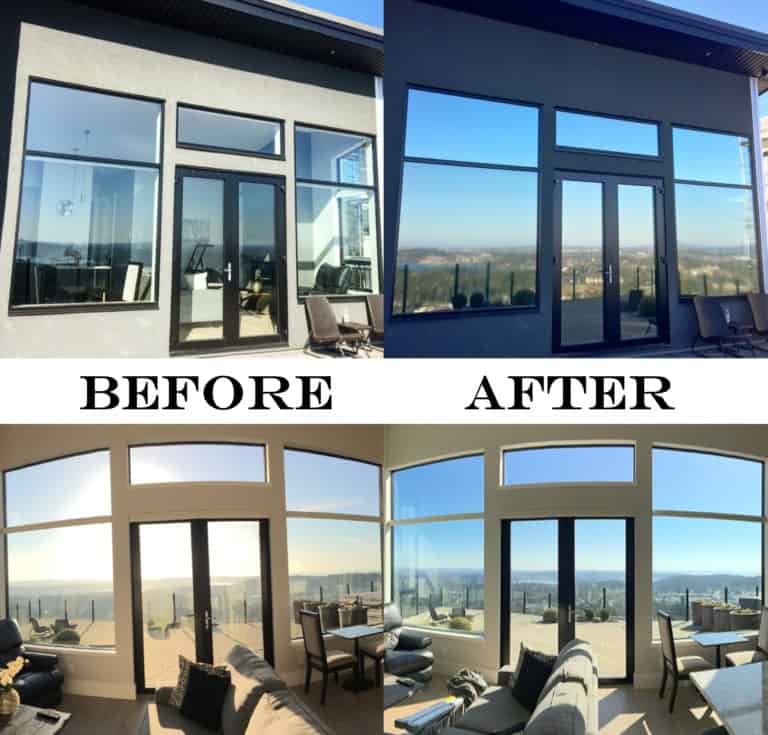Residential Window Tint: Secure Your Furnishings from UV Damages
Residential Window Tint: Secure Your Furnishings from UV Damages
Blog Article
How Residential Home Window Tinting Improves Your Home's Energy Effectiveness
Residential window tinting provides an engaging remedy for homeowners looking for to improve power performance within their living spaces. By applying specialized movies to home windows, it effectively lowers heat transfer, therefore maintaining indoor temperatures and reducing the requirement for too much home heating or air conditioning.
Understanding Home Window Tinting
Understanding window tinting is important for house owners looking for to boost both convenience and power performance in their living spaces. Residential Window Tint. Home window tinting involves the application of a thin movie to the interior or outside surface area of glass home windows. This movie can dramatically regulate the quantity of sunlight and heat that enters a home, hence influencing indoor environment problems
There are numerous sorts of window tinting movies readily available, each with distinctive homes. For example, colored movies take in solar power, while reflective films disperse it far from the glass surface area. Ceramic films provide a balance of visibility and heat rejection, making them a popular option amongst homeowners. The performance of home window tinting is commonly determined by its Visible Light Transmission (VLT) percent, which indicates just how much light can pass via the movie.
Advantages of Power Efficiency
Window tinting not only enhances looks but additionally plays a considerable duty in boosting energy performance within property spaces. By minimizing heat transfer via windows, colored movies produce an extra stable interior climate, which can cause substantial reductions in power intake for heating & cooling. This energy effectiveness translates into reduced utility expenses, giving property owners with significant lasting savings.

In addition, window tinting enhances the convenience of living areas. By lessening glare and obstructing dangerous UV rays, colored windows develop a more pleasant setting, which can result in improved health for passengers. The protection versus UV rays also aids preserve furniture and floor covering from fading, contributing to the long life of family items.
Just How Tinting Works
Tinting movies operate via a mix of advanced products and technologies created to control the quantity of solar power going into a home. Primarily made up of polyester, these movies commonly incorporate metallic or ceramic particles that mirror and absorb warm. This dual ability allows them to dramatically decrease the infiltration of ultraviolet (UV) rays and infrared radiation while allowing noticeable light to go through.
The efficiency of window tinting is gauged by its solar heat gain coefficient (SHGC), which shows just how much solar energy is transferred via the window. Lower SHGC values are better as they denote higher warm rejection. In addition, home window tints can feature a selection of shades, permitting homeowners to customize their visual choices while boosting power performance.
In addition, these movies act as a barrier, protecting against heat loss throughout chillier months by mirroring indoor warmth back right into the home. This thermal insulation result matches the cooling benefits gotten during warmer months, adding to a balanced interior environment year-round. By taking care of solar energy efficiently, domestic home window tinting not just improves convenience yet additionally plays a try this site vital function in lowering power intake and decreasing energy expenses.
Selecting the Right Tint

There are various types of window movies readily available, consisting of dyed, metalized, and ceramic. Ceramic films offer exceptional warmth control without endangering visibility and are highly resilient, making them a popular choice.
Visible light transmission (VLT) is an additional crucial variable, as it indicates the amount of natural light that can go through the colored glass. Homeowners need to select a tint with a VLT that complements their lighting preferences while still providing sufficient glare decrease.
In addition, assessing the solar heat gain coefficient (SHGC) can help determine how well a tint can block warmth from sunshine. A reduced SHGC suggests far better warm control, eventually enhancing energy performance.
Setup and Maintenance Tips
Correct installation and upkeep are vital elements in taking full advantage of the advantages of domestic home window tinting. Professionals likewise make use of specialized techniques and devices, which can enhance the resilience and efficiency of the tint.
Complying with installment, upkeep is important to extend the life of the home window movie. It is recommended to wait at least 30 days before cleaning see the tinted home windows to permit the glue to heal totally.
Addressing these concerns without delay can avoid additional damage and maintain power performance. By adhering to these installment and maintenance pointers, property owners can ensure their window tinting proceeds to give substantial energy savings and convenience for years to come.
Final Thought
Finally, residential home window tinting acts as an effective remedy for improving power effectiveness within homes. By decreasing heat transfer and obstructing damaging UV rays, window movies contribute to Go Here lower power consumption and boosted interior comfort. The option of proper tinting materials, in addition to appropriate installment and maintenance, further takes full advantage of these benefits. Eventually, window tinting represents a lasting investment that not just reduces energy bills yet also advertises a comfortable living environment throughout the year.
Home window tinting involves the application of a slim film to the inside or outside surface of glass windows. By decreasing heat transfer through windows, colored movies develop a more steady indoor environment, which can lead to significant decreases in energy intake for home heating and air conditioning.The efficiency of window tinting is measured by its solar warm gain coefficient (SHGC), which suggests just how much solar energy is transferred with the home window. By taking care of solar power effectively, domestic window tinting not only enhances convenience yet additionally plays a crucial role in lowering power consumption and lowering utility bills.
By reducing warm transfer and blocking unsafe UV rays, home window films add to reduce energy consumption and enhanced indoor convenience.
Report this page